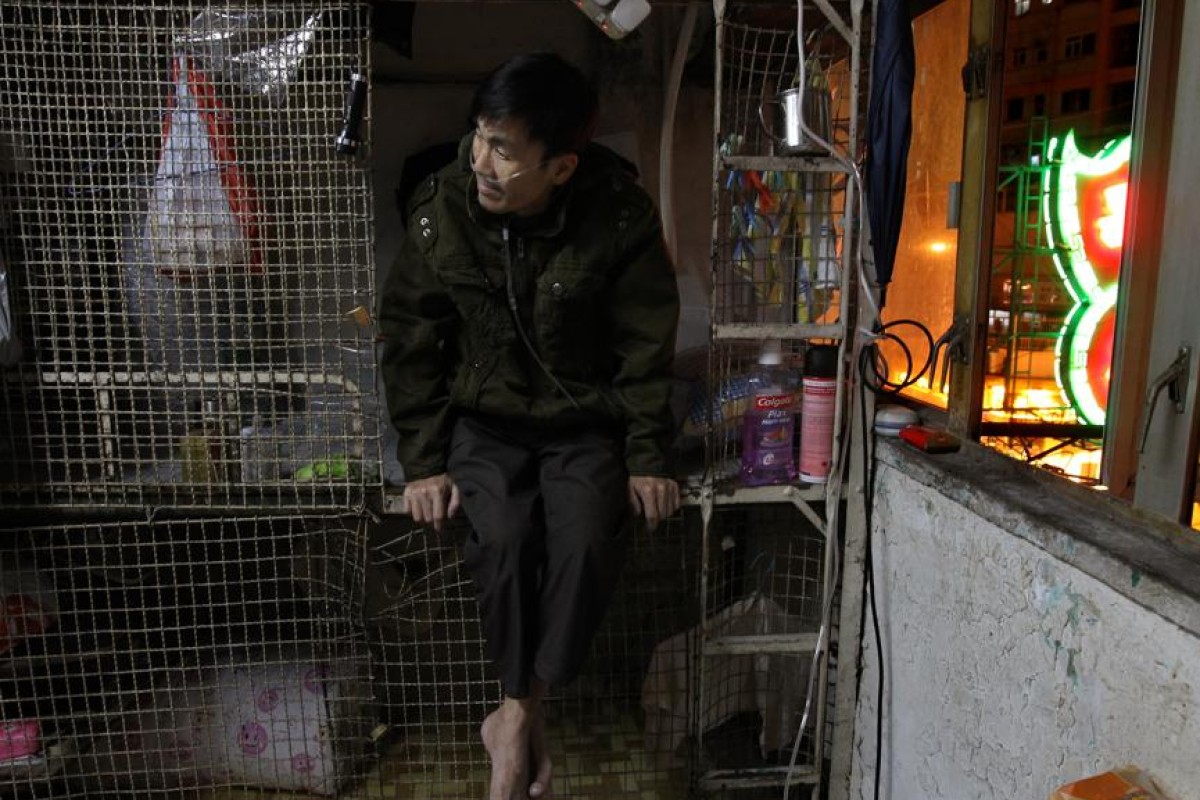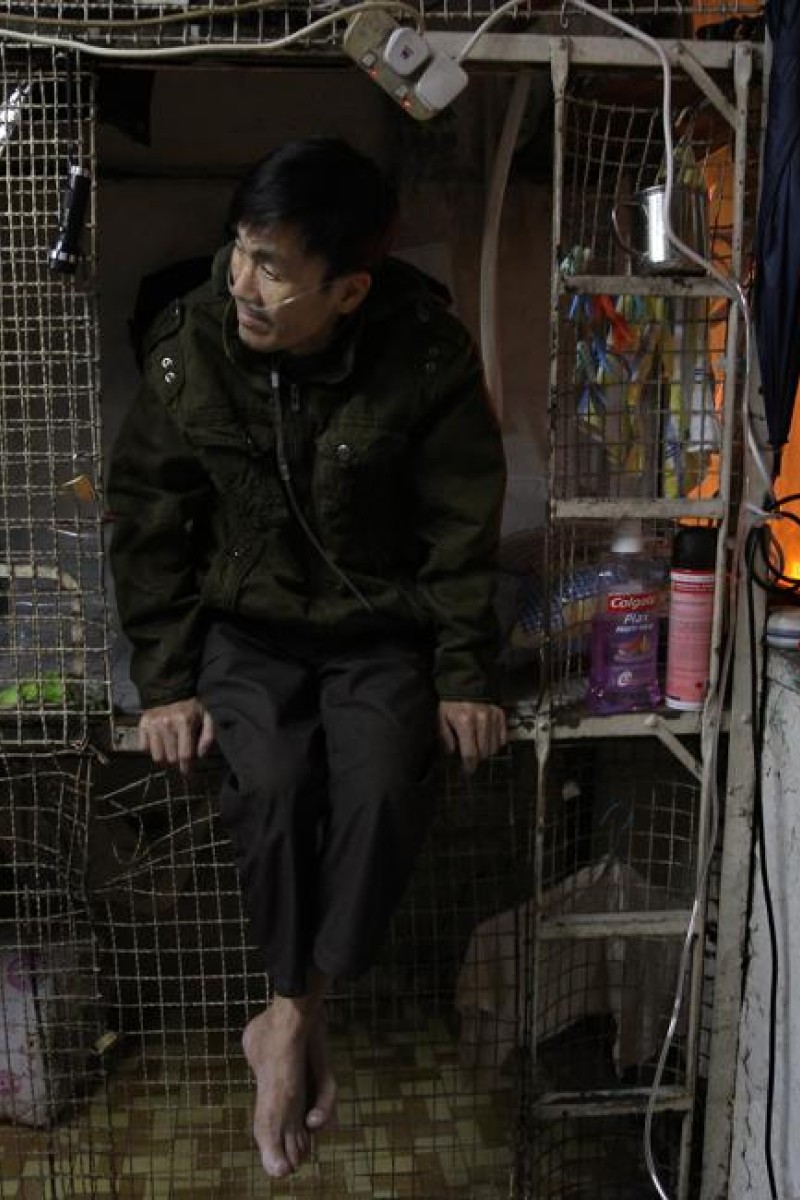 A man sits in his caged home in Mong Kok.
A man sits in his caged home in Mong Kok. Kelvin Chan To-yik, 16, Kwok Tak Seng Catholic Secondary School
No, because it would make life more difficult for the poor. Many people claim that cage homes are illegal, but the fact is that people who live in those cubicles cannot afford anything else.
I agree that they live in terrible conditions. They have to pay several hundred dollars a month for a 15-square-foot living space, and share the toilet and kitchen with the other tenants.
Instead of introducing legislation to make cage homes illegal, maybe the government should give an allowance to those who rent them. This would help improve their quality of life, and they may one day be able to save up enough to move into a better home.
Li Chun-shing, 11, St Francis of Assisi’s English Primary School
Cage homes should be made illegal only if the government can help all low-income earners. The living conditions of these wire-mesh cages may be really bad but the poor have nowhere else to go. Is it OK for them to sleep on the streets? I don’t think so.
The government should take steps to control the city’s property prices. It should limit the number of flats a person can own if they don’t live in the city. But the best solution is to build more public housing. This is the only way to make people leave their cage homes.
Yu Wai-ying, 15, PLK Wu Chung College
Cage homes are found in many areas around Hong Kong. Although they provide low-cost housing for the disadvantaged, they should be made illegal.
Cage homes are so tiny that you can’t fit anything bigger than a bed in them. Even subdivided flats offer better living conditions. There’s also no privacy – anything you do can be seen by other cage-home dwellers. Also, you live in a CAGE. You might as well be regarded as an animal.
Cage homes are very unhygienic, too. The bathrooms and the kitchen are shared by many people. This means you can easily pick up all sorts of illnesses.
Hong Kong has no place for such awful homes. They should be torn down.
Angel Liu Wing-tin, 14, SKH Tsang Shiu Tim Secondary School
Definitely. People living in tiny cage homes can easily get into a fight. The living conditions are very poor; residents have to share the bathrooms and the kitchen with many others. Imagine 15 or more people being forced to use the same toilet. What happens if no one is willing to clean it?
Cage homes are so small that people have to put their belongings on the floor. They spend most of their time on their beds. And because they can’t sit up straight, they can suffer sore backs and other health problems.
If there is a fire in a building packed with cage homes and subdivided flats, the stairs would be packed with people, making it harder to get to safety.
To prevent a future tragedy, cage homes should be banned, for sure.
Valerie Yung, 13, King George V School
Of course, yes! The expression “cage homes” shows how brutal these places can be. They’re not homes – people, especially the elderly, live in inhumane conditions.
In primary school, I took part in an activity that helped raise awareness of the issue among young people. While my friends went off to study dolphins, our group built cage homes using barbecue nets. It gave us a taste of the horrible conditions that cage home dwellers have to deal with every day.
The government should introduce new laws to ban cage homes once and for all.
In our next Talking Points, we’ll discuss:
Should Mandarin be a compulsory subject in secondary school?
We are now accepting your answers for this topic. To take part, email your answer with your name, age, and school, along with a nice, clear selfie (make sure it’s not blurry), to [email protected] by lunchtime on Monday. Don’t forget to include “Talking Points” in the subject line.

